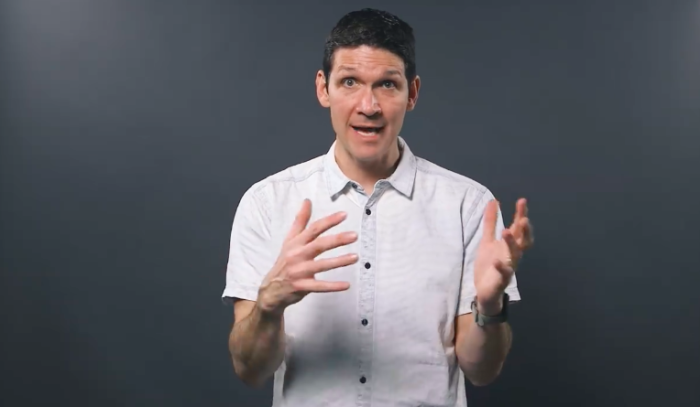Lent: Matt Chandler on why Christians should abstain from food

Matt Chandler, pastor of the Village Church, has encouraged Christians to abstain from food for Lent to "orient their hearts around the betterness of Jesus above earthly pleasures."
In a video posted this week, Chandler pointed out that the season of Lent — which this year falls between March 6 and April 18 — traditionally involves followers of Christ fasting from food.
“Not all food but, but maybe that's breakfast, or maybe that's lunch, or something like that,” he clarified. “We want to set aside a good gift from God in the gift of food, the provision of that food, the gift of the taste of that food, the joy that comes from that food.”
When believers abstain from food, they’re essentially saying that there is a “greater pleasure to be known and a greater joy to be had” and a “provision available to me as a son or daughter of God that I want to lean into in this season,” Chandler explained.
“In this week of Lent...maybe one of the ways that you exercise this is by refraining from a breakfast or a lunch,” the pastor concluded. “And then, using that time, that hour or that 30 minutes, however long you're given, either at work or at home, depending on how you do it, to pray, to consider, to read the text and the seasons guide, and to orient your heart around the betterness of Jesus above and over all earthly pleasures.”
Lent is the season leading up to Easter, during which Christians symbolically follow Christ into the wilderness, fasting from lesser things to be filled with the greater things of the gospel. The Village Church offers a guide for Christians who choose to participate in Lent that includes weekly fasts, prayers and Scripture readings.
“Lent is about identifying with the temptation and suffering of Jesus Christ before we celebrate the resurrection on Easter,” Chandler previously explained. “The forty days leading up to Easter, the church has historically entered into a season of self-denial, of fasting, and of focusing on Jesus bearing the weight of sin and death for those of us who are in Christ.”
“The season of Lent is about self-denial,” he said. “It’s about orienting our hearts around the temptation and suffering of Jesus Christ, and it’s about preparing our hearts to rejoice more fully at the resurrection."
"So, we don’t practice self-denial for denial’s sake; we don’t fast for fasting’s sake," he continued. "We’re trying to, with our bodies and with our minds and hearts, enter into the story of Christ’s redeeming work for us and feel things and sense things and wire ourselves and our communities in such a way that when Easter Sunday morning rolls around, there’s a celebration of Christ’s victory over sin and death forever.”
Overall, 1 in 4 Americans observe Lent (24 percent), according to a 2017 survey from LifeWay Research. Catholics (61 percent) remain most likely to observe Lent. Protestants (20 percent) and those with evangelical beliefs (28 percent) are less likely.
Fasting from a favorite food or beverage (57 percent) and going to church (57 percent) are the most common ways to observe Lent. Additional prayer (39 percent), giving to others (38 percent) or fasting from a bad habit (35 percent) are also popular.
Scott McConnell, executive director of LifeWay Research, pointed out that unlike Christmas and Easter, Lent remains a religious event rather than one that appeals to a broader public.
“Lent is not about having your best life now,” McConnell said. “Those who observe it believe they are giving up things they want in order to focus on what God wants. There’s little popular appeal in that.”
“There’s a lot more to Lent than giving things up,” he added. “Americans who observe Lent also take other steps—like praying, giving, and going to church more—to practice their faith.”




























